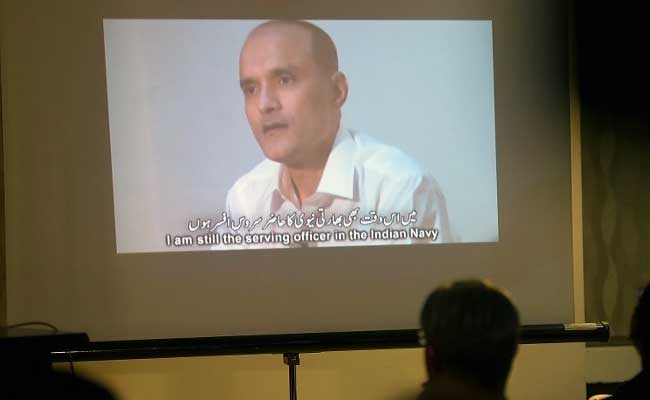
In ordering Pakistan to stay the execution of Kulbhushan Jadhav, the International Court of Justice (ICJ) on Thursday unanimously accepted Indias contention that there was a real danger to the life of Mr Jadhav, the Indian national sentenced to death by a Pakistan military court last month. The court said the -risk- was real since Pakistan only mentioned that the appeals process could go on till August. It implied, the 11-judge top court of the United Nations said, that -there is a risk that an execution could take place at any moment thereafter, before the Court has given its final decision in the case-.
Here are the 10 facts on this story:
Kulbhushan Jadhav was arrested on 3 March 2016 from the turbulent province of Baluchistan by Pakistani intelligence services on espionage charges. India believes he had been abducted from Iran where he was on business and mysteriously appeared in the custody of Pakistani security agencies. The world court said the facts, other than his arrest, are in dispute.
Pakistan foreign secretary informed New Delhi about the arrest on 25 March, more than two weeks later. India promptly sought consular access but there was no response. On the same day, Mr Jadhav's confessional video statement was recorded that allegedly showed him admitting to working for India's spy agency, Research & Analysis Wing.
India sent the first reminder to seek access to him five days later. And there were more than a dozen reminders, an average of one every month. "All these requests fell on deaf ears," India told the world court.
It later turned out that he was put on trial by a Pakistani military court for allegedly carrying out explosions and killing people. The trial started in September and was completed in four hearings. On 10 February 2017, the court also sentenced him to death.
India got to know about the verdict only when the Pakistani army chief confirmed the sentence on 10 April 2017 and the decision was announced. India retaliated by refusing to release 12 Pakistani prisoners due to cross over after completing their jail term.
In parliament the next day, angry lawmakers took the government to task for not doing enough to save the Indian national who was being made a scapegoat. Foreign Minister Sushma Swaraj called it "an indefensible verdict" and warned Pakistan to "consider the consequences" of the case on its relations with India.
In Pakistan the same day, Sartaj Aziz, Adviser on Foreign Affairs to Pakistan Prime Minister, explained that Mr Jadhav could still appeal against the verdict at different levels. When India sought consular access to him as well as court papers to help him with his appeals, there was again no response.
Foreign Minister Swaraj wrote to Mr Aziz on 27 March to let Mr Jadhav's mother meet her son and process his appeals, but there was no response.
Given the secrecy with which Pakistan had secretly carried out Mr Jadhav's "farcical trial", India approached the international court on 8 May. The court took note of the Indian request, asked Pakistan not to carry out the sentence till it took up the case and fixed the hearing for 15 May.
On Monday, the court heard arguments presented by both sides. Pakistan tried to suggest that it wasn't going to short circuit the process and India was only trying to use the court as a political theatre. New Delhi stressed that given how Pakistan had handled the entire case, there was an "immediate threat" to Mr Jadhav's life.

